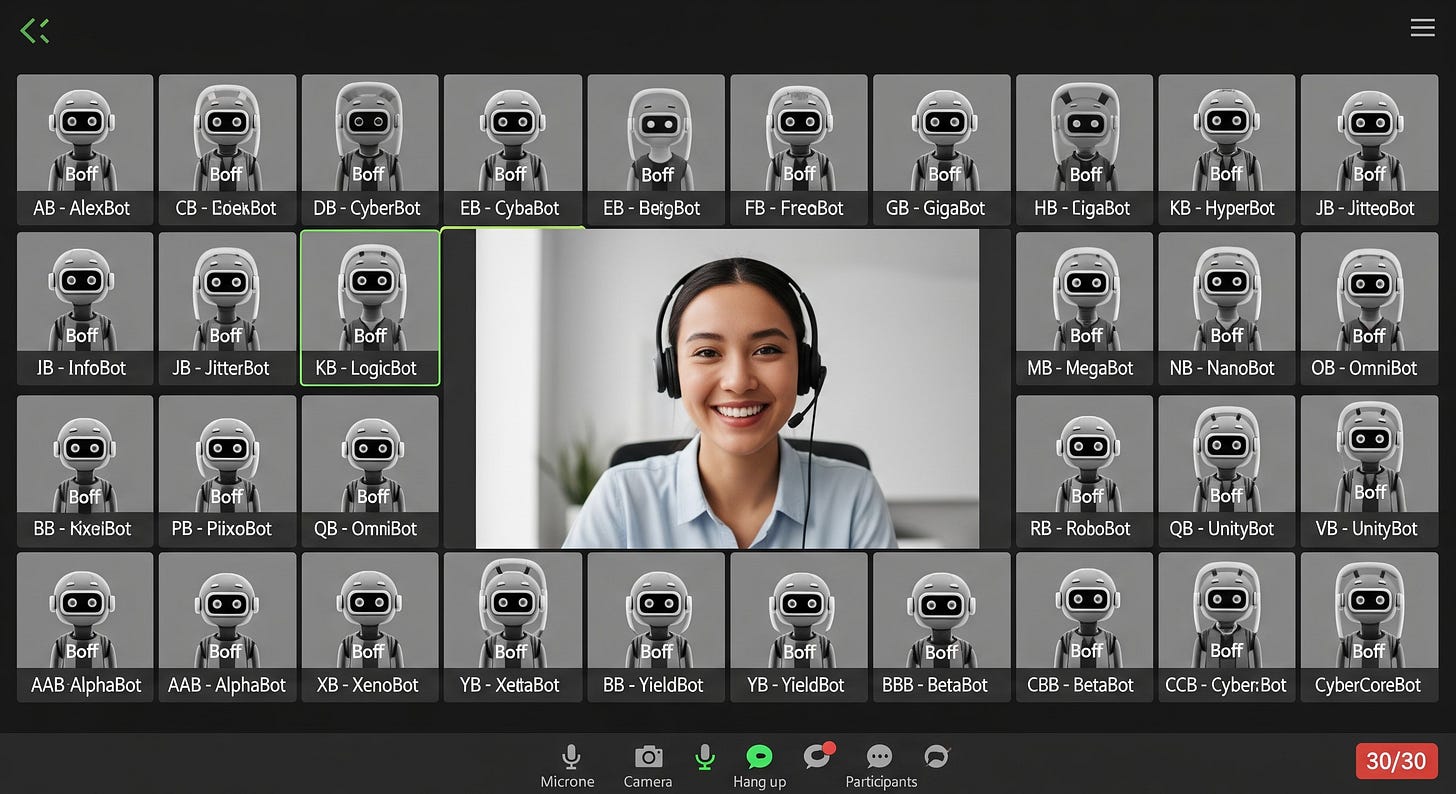AI bots 🤖 are taking over the internet | MS Sharepoint Toolshell vulnerability being actively exploited
#197 - and ruining it for the 👱🏼♂️humans | A vulnerability with a CVSS score of 9.8 is being actively exploited out in the wild
Once upon a time, webinar attendees were humans.
The Times They Are a-Changin'
This article on Dark Reading says AI bot traffic has surpassed web traffic in 2024. The menace is pertinent enough to get attention at BlackHat 2025.
Last month, I was conducting a webinar. My team removed 4 AI bots from the meeting. They were added, most likely, to helpfully take notes and summarize the content of the webinar. Why remove AI bots, you ask? I conduct sessions that are interactive. There are a lot of discussions and questions and answers. A great webinar is where there is a lot of interaction and the topic of discussion is unraveling. You cannot do that with a passive bot that just wants to consume and summarize. Also, people who add their bots along with themselves, tend to start doing other stuff on their computers — safe in the knowledge that the bot will summarize things for them.
When I read the post, the first thought that I had was about the webinar and the unwanted bots - I had to write about it.
So, what’s happening exactly?
Big tech is building Big AI.
Big AI needs Big data to learn.
Big Data is available on the internet, but someone needs to ‘scrape’ it.
Web scraping is a technique where data from a web page is downloaded using an automated mechanism. However, just like in webinars, web scraping tools are not very welcome by humans. There are reasons for it:
Websites that rely on ad clicks for their revenue do not like AI bots as the ads do not get shown to humans. They are not paid to show ads to bots
Every time a website is accessed, some resources of the web server are used. Constant scraping by bots means that server utilization is high and it might increase hosting costs (without increasing revenue).
To be fair to the bots, they need to learn from the internet. However, some of them were found to be scraping even when they were explicitly told to not do so.
How does a website explicitly tell a bot not to scrape?
Websites maintain a file called ‘robots.txt’. This is a text file that directs bots (search engine bots as well as AI scraping bots) on the contents. It tells them what they can index and what they cannot.
The robots.txt file is a social contract. It is not enforced by any technology. It’s like you telling a guest to your home - “here is the way to the bathroom, but do not look into this door — that’s personal”. Some AI bots have ignored this and creepily peeped into things specifically denied, all in the hope of a better trained AI model.
This is causing a significant erosion of trust. Websites are now putting in mechanisms to detect these bots and block them. Cloudflare offers this service on their 1.1.1.1 proudly asking you to ‘Declare your AI independence’.
While this is not an information security issue, I believe that the erosion of trust across the board can have a catastrophic impact on how the internet runs.
Take Action:
Cybersecurity/ Data Privacy Professionals 🕵🏼♀️ - If your website is subject to this type of scraping, you can consider going bot free by implementing technical measures that vendors like Cloudflare have.
AI developers 🚊 - Maybe, don’t ignore robots.txt.
Toolshell - an active exploitation of an MS Sharepoint vulnerability
The popular file management server with 200 million users is being actively exploited
This is a rather big one. If you have on-prem or self hosted Sharepoint servers, this one applies to you. The details are a little sketchy. What we know so far is that insecure deserialization causes malicious code execution and allows an attacker to not only gain full access, but also maintain access by using the capability to steal SharePoint ASP.NET machine keys.
Ars Technica has covered this bit of news very well. Read these two pieces [LINK] [LINK] for a detailed understanding of what is known so far.
The vulnerability is being actively exploited, especially against government organisations. CISA has released an advisory on this as well.
There is even a rumor of an insider leak in the MAPP (Microsoft Active Protection Program). This article postulates that there could be an insider leak that allows state sponsored hacking groups to exploit this.
Take Action:
Cybersecurity Professionals 🕵🏼♀️: Drop everything, read this advisory from MS and fix the bug as soon as possible.


